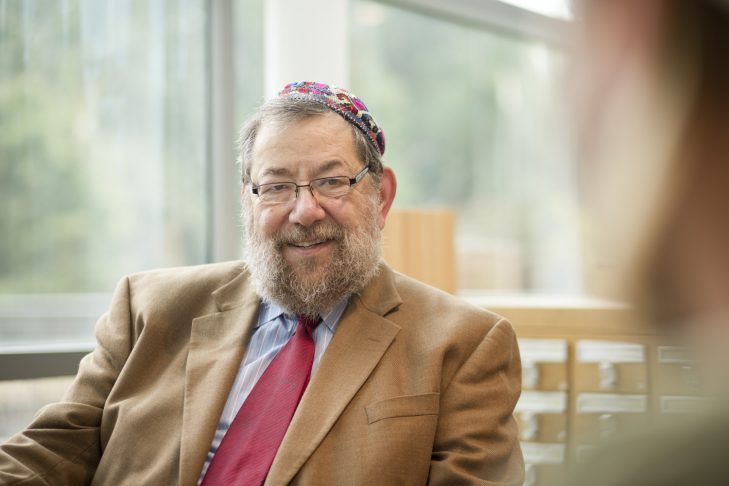“People think of Hasidism as a movement that was mostly a movement of men; men left their families behind and went to be with the Rebbe, and the audience for whom the Rebbe wrote was an all-male audience. Women were really left out of Hasidism. But Nehemia has made a case for the fact that women were often very powerful in these Hasidic dynasties.”
—Rabbi Arthur Green
In this episode of “Speaking Torah,” Rabbi Nehemia Polen shares with us his lyrical and beautiful reflections on the experience of translating Malkah Shapiro’s “The Rebbe’s Daughter,” and the challenges and lessons learned along the way.
Rabbi Polen is professor of Jewish thought at Hebrew College, a leading expert in Hasidism and Jewish thought, and a widely published author and translator. And reading his essay we have another authority in the field of translation from Hebrew into English, Rabbi Arthur “Art” Green, one of the world’s preeminent authorities on Hasidism, Jewish thought, spirituality and neo-Hasidism.
Listen in this episode to discover the insights that Rabbi Polen uncovered during the process of his understanding and translation of Malkah Shapiro’s memoir and the challenges of separating himself from the work while remaining an integral vehicle in its delivery.
Listen to the full episode here, or on Apple Podcasts, Stitcher or Spotify.
What you’ll discover from this episode:
- The metaphorical unrelenting stages of translation, from quagmire to quicksand
- Why translation as an art is both a dedication and a necessary betrayal
- Where not considering the size of the challenge ahead could be considered a wise move
- What fascinated Rabbi Polen about Malkah Shapiro and her story
- Why Rabbi Green believes Rabbi Polen’s discovery of Malkah Shapiro and her memoirs was so important
Featured on this episode:
Rabbi Nehemia Polen (writer) is professor of Jewish thought at Hebrew College. He is a leading expert in Hasidism and Jewish thought and a widely published author. Among his books are “The Holy Fire: The Teachings of Rabbi Kalonymus Kalman Shapira,” “The Rebbe of the Warsaw Ghetto” and “The Rebbe’s Daughter,” for which he received the National Jewish Book Award. It is his experience working this last book—when he was a National Endowment for the Humanities fellow—which served as the inspiration for the essay we will hear today. Rabbi Polen holds a doctorate from Boston University, where he studied with and served as a teaching fellow for Nobel Laureate Elie Wiesel.
Rabbi Arthur Green (reader) is the founding dean and current rector of the Rabbinical School of Hebrew College and Irving Brudnick Professor of Jewish Philosophy and Religion at Hebrew College. He is professor emeritus at Brandeis University, where he occupied the distinguished Philip W. Lown Professorship of Jewish Thought. He is both a historian of Jewish religion and a theologian; his work seeks to form a bridge between these two distinct fields of endeavor.
Rabbi Jeffrey Summit, Ph.D. (host), is director of the Hebrew College Innovation Lab. He is research professor in the department of music and Judaic studies at Tufts University and senior consultant for Hillel International. The author of several books, among his many awards are a 2018 Hebrew College honorary degree, a Grammy nomination for his album “Abayudaya: Music from the Jewish People of Uganda,” the Edgar M. Bronfman Award for Lifetime Accomplishment in Hillel Professional Leadership and the Tufts Hosea Ballou Medal.
Torah is one of the most profound sources of wisdom available to us. In Hebrew College’s new podcast, “Speaking Torah,” Jewish leaders from around the world read essays from Hebrew College faculty and rabbinical alumni about how Torah can help us navigate the most pressing issues of our time. Together, we explore the ways Torah can help us approach the world with creativity, healing and hope. Find out more at hebrewcollege.edu/podcast.
This post has been contributed by a third party. The opinions, facts and any media content are presented solely by the author, and JewishBoston assumes no responsibility for them. Want to add your voice to the conversation? Publish your own post here. MORE







